

An interesting week for The English Apple Man with a visit to a fruit farm in Essex on Tuesday and a meeting at Hadlow College on Wednesday.
Tuesday saw the EAM heading off from home in East Sussex to Fryers Fruit Farm at Charity Farm, in the village of Lawford, near Manningtree in Essex;
In spite of the 'volatile weather' with heavy rain, hail and sunshine appearing at unpredictable times during the day, some 30+ Essex & Suffolk Fruit Growers Society (E&SFGS) Members attended the visit to Charity Farm.
The Fryer Family, farm some 100 acres, with a diverse mix of Apples, Pears, Plums, Cherries, Blueberries, Greengages, Apricots, Cob nuts, Apple Juice and Christmas trees. On another farm they grow Conifers for the nursery trade.
It is very much a family enterprise with Jack, Robert and Charles; the sons of founder John Fryer farming in partnership; with Charles wife Susan playing an important role managing the excellent farm shop; 'an integral' part of the farming business and Jack's wife Wendy managing the juice business, labeling all the bottles herself by hand and attending farmers markets with Fryer Family products.
In the picture below, Charles and Susan, Robert, Jack, and Simon (Robert's son)
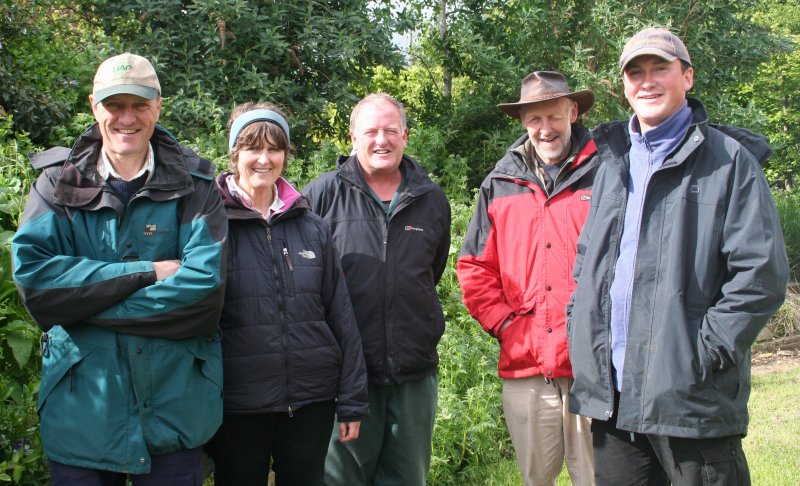
The English Apple Man has been critical of many farm shops, particularly those who portray an 'aura' of selling their own, or local produce, but buying in most offerings from wholesalers. To my mind they are no better than the shop in the village or town.
BUT Fryers Farm Shop is a proper farm shop majoring on a plethora of fruit grown on their farm and sold fresh to their consumers. True there is a supporting cast of appropriate products which complement the 'home grown' produce, but this complements, rather than detracts, from the nature of this excellent farm shop enterprise.
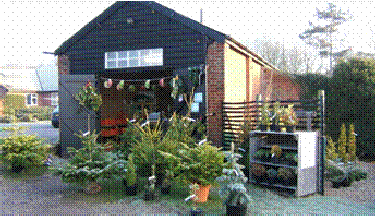
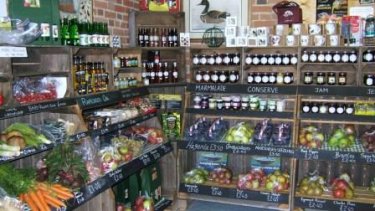
While the farm shop is important, Cox, Gala, Braeburn, Egremont Russet and Conference Pear volume exceeds the farm shop needs, and the bulk of these varieties are sold through SGT (Society of Growers & Traders) to UK Supermarkets. The apples & pears once picked, are stored in cold stores on the farm and sent to an SGT packhouse in Kent as required during The English marketing season.
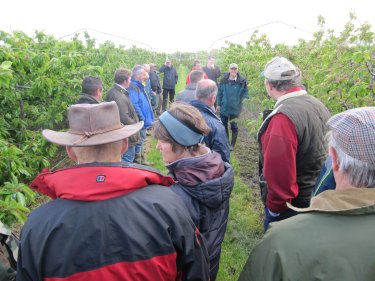
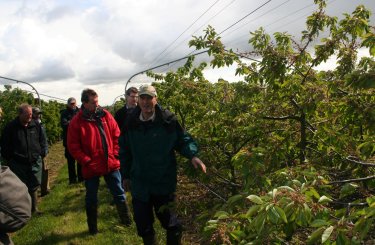
APPLES: The season starts with Discovery, Worcester Pearmain, Katy, Bramley, Early Windsor, James Grieve, Red Pippin, Elstar, Cox, Gala, Egremont Russet, Crispin, Spartan, Jonagored, Claudle, Winter Gem, Princess Russet, Braeburn and Jonica. To complete the apple mix, the farm also has Medlar and Crab Apples.
PEARS: Williams start the pear season followed by Conference, Concorde and Comice.
CHERRIES: Summersun, Summit, Sunburst, Stella, Lapins, Colney, Penny, Sweetheart, Hertford, Skeener, Merchant.
PLUMS: Early River, Opal, Czar, Sanctus Hubertus, Victoria, Jubilee, Warwickshire Drooper, Marjorie's Seedling, Giant Prune, Laxton Cropper, Herman, Violetta, Seneca, Guinevere, Yellow Pershore.
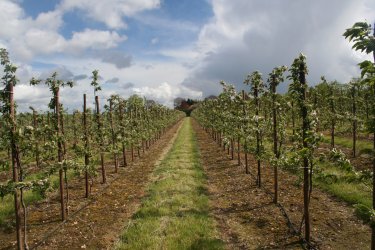
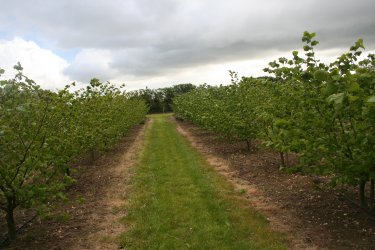
Greengages, Damsons and a small area of Blueberries add to the eclectic mix and Apricots, Peaches and the newly planted Plat of Cobnuts, complete the diverse mix of produce grown at Charity Farm.
At the stage of the season, an uncertain picture of crop potential exists. The cherries, which are an important crop for the Fryer family, have endured some pretty horrible weather recently and it is difficult to be optimistic about the final crop, Cherries are notorious for appearing to set, before 'running off' as the fruit starts to colour.
In the picture below, there appears to be a reasonable fruit set, but this could easily change in the next few weeks.
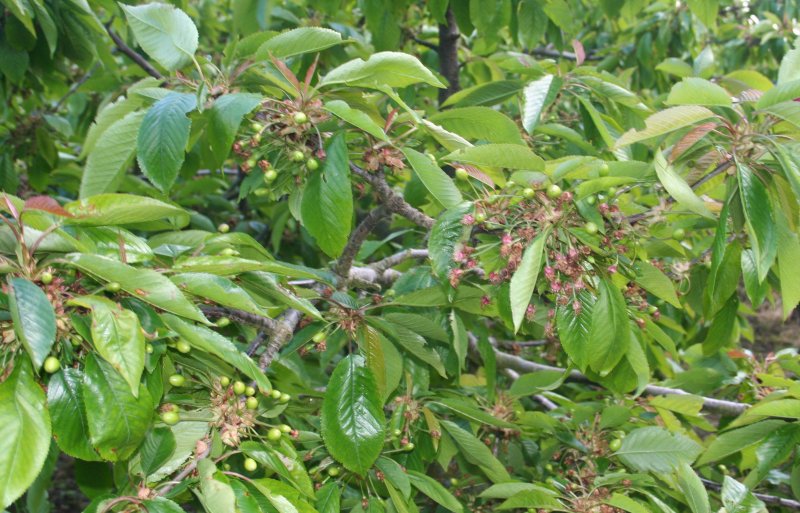
Visit the website for FRYERS FARM SHOP for a comprehensive view of available fruit at the farm shop.
Visit the Farm Shop at Lawford, on the A137 Harwich Road, near Manningtree in Essex. "Open from circa mid June".
![]() HADLOW COLLEGE
HADLOW COLLEGE
On Wednesday The EAM met up with members of the Hadlow Focus Group to discuss a challenging subject; 'Eating Healthily' - how it benefits our landscape.
Unfortunately, the journalist we were meeting to brief was unable (at the last moment) to attend. But a very fruitful discussion between Focus Group members explored the challenges facing producers and consumers as the influence of economic factors change the 'status quo'
Some areas of food production naturally sit easily within the concept; apples and pears enhance the the countryside with a visual beauty, and create food which is integral to a healthy diet. Dairy farming and Sheep farming not only produce valuable protein, but recycle grass and enrich the soil and the visual enjoyment of our surroundings.
The real challenges come where production of food requires structures which can be seen as a blight to the visual pleasure of our landscape. Protective covers; e.g. poly tunnels or similar structures are essential to the home grown production of strawberries, raspberries, blueberries, and cherries, all of which avoid transporting fruit across continents to fill our supermarket shelves, but can be offensive to neighbours in country areas.
Currently the subject of 'eyesores' is dominated by wind farms generating 'green' energy. Cast an eye back to our history and you will find records of discontent when windmills were erected all over our countryside; today they are the revered as a beautiful enhancement as they sit majestically in our landscape.
Within our discussion, the probability of energy costs; particularly in the form of the diesel which powers the transportation of our food from growing regions far from the main areas of consumption will force a change in the production and distribution process.
The cost of distribution may force production of intensive soft fruit dependent on protective covers away from the truly rural areas towards the towns and cities where the consumers are; changing the need for long distance distribution from large production areas in rural areas and by association the visual impact in the countryside.
Another possibility is the potential of 'Urban Farming' where sites within City/Town boundaries could be utilised to produce, in particular, horticultural produce. Howard Lee, "Sustainability Champion" at Hadlow College is involved with a pan European project looking at the opportunities for trialing urban production units.
The English Apple Man believes 'Vertical farming' could easily fit into this strategy.
See below an extract from a presentation by Kevin Frediani about how he used vertical farming as a production unit for fresh salads.
Vertical Farming: going up instead of out!
Kevin Frediani, Curator of Plants and Gardens, took us into his world at Paignton Zoo where he has pioneered the use of the 'Verticrop' system for salad production (which is fed to the zoo animals). The presentation focused on the use of new technology such as this type of vertical farming to increase productivity and improve sustainability of farming high value crops for the future, such as strawberries.
Kevin told us Paignton Zoo's Verti-Crop is the first public working prototype of its kind in the world. It is designed to produce sustainable food using fewer resources such as water and land and to reduce carbon footprints and food miles.
"Our little prototype grows 11,000 plants in 100 square meters of floor space using a conveyor driven stacked growing system. Lettuce and salad mixes grow well in it. This helps us feed fresh, home-grown food to our animals, but the human potential is enormous - in the future, every school, hospital and housing estate in every town and city could grow their own vegetables."
![]() Below a couple of news releases worth reading.
Below a couple of news releases worth reading.
Will Supermarkets finally play fair with consumers?
"No more ditching suppliers at 'drop of a hat', multiples told!
Supermarkets will no longer be able to "scrap arrangements with suppliers at the drop of a hat" when the Grocery Code Adjudicator comes into being, business minister Norman Lamb has warned.
Speaking today as the Adjudicator bill was published in the House of Lords, Lamb said he amended the draft legislation to permit trade associations to files complaints to the new watchdog on behalf of individual companies.
"The large supermarkets have a lot of buyer power - and with power come responsibilities," Lamb said.
"Supermarkets will still be able to secure the best deals and to pass the benefits on to consumers, but they should also treat farmers and suppliers fairly and lawfully. This means paying them on time or not being able to scrap arrangements with farmers and suppliers at the drop of a hat.
"By preventing retailers from transferring excessive risk to their suppliers we will support investment and innovation in the supply chain. In the long-term, that's in the best interests of everyone, especially the consumer."
Melanie Leech of the Food & Drink Federation added: "The Competition Commission findings were clear that unless the abuse of market power is addressed then businesses especially small and medium sized manufacturers will be less inclined to innovate and invest."
Source: The Grocer
Field vegetables under rain threat!
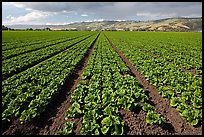 Ongoing rainfall is threatening to curtail the asparagus season and disrupt the new potato and vining pea campaigns.
Ongoing rainfall is threatening to curtail the asparagus season and disrupt the new potato and vining pea campaigns.
An annual asparagus festival in the Vale of Evesham scheduled for last weekend had to be cancelled due to a lack of asparagus. Cooler air temperatures and rain cooling soil temperatures has meant that asparagus crowns are not producing their spears yet.
According to the British Asparagus campaign, run on behalf of growers by Pam Lloyd PR, it could be another 10 days before peak volumes are reached and cutting will have to stop on 21 June as usual in order to give ferns enough time to recover and produce next season.
A spokeswoman for the campaign said: "The long-term forecast for May is also not good, but this does have the side benefit of spreading the asparagus supply more evenly throughout the season, which should provide more availability for the Jubilee weekend than we might normally expect for that time of year." Harvesting is running at one day in four rather than every day.
In Lincolnshire and the eastern counties, concern is growing for the vining pea crop. Salvador Potter of the Processors and Growers Research Organisation said: "Early varieties went in quite early, but we have been on hold now for three weeks with the mid-season varieties. The consequence is at harvest time the factories will be stood still for a couple of weeks and then we will get a concertina effect."
Meanwhile, David Nelson, field director at Branston, said its growers in the South West are feeling the effects of the rain: "Some of the early planted potatoes are waterlogged and there is a bit of erosion due to the rain." He added that four weeks without any plantings means that there is still some 40 per cent of the potato crop to go into the ground.
"That later crop then won't have much of the growing season left to reach its full yield potential."
Fears that there will be an overlap of supply and a clash on the marketplace with Jersey Royals are unfounded, however, according to a spokesman for the Jersey Royal Company. "It is turning into a pretty normal season for Jersey Royals," he said. "The start was late, but there won't be any great splurge of product all at the same time. Now is the key time and the multiples have kicked off promotions."
Source: Freshinfo

![]() Returning to the crop prospects for Apples, Pears, Cherries and Plums; we must wait a while for a clearer picture. In days gone by, when apple trees were much larger than today, and tiny fruitlets would hide beneath the leaf canopy, the 'wise old heads' would tell you to go off (maybe on holiday) and look again on Derby Day. Certainly I can remember seasons where I would struggle to find fruitlets, only to return a few weeks later and be amazed at where the fruit had all come from.
Returning to the crop prospects for Apples, Pears, Cherries and Plums; we must wait a while for a clearer picture. In days gone by, when apple trees were much larger than today, and tiny fruitlets would hide beneath the leaf canopy, the 'wise old heads' would tell you to go off (maybe on holiday) and look again on Derby Day. Certainly I can remember seasons where I would struggle to find fruitlets, only to return a few weeks later and be amazed at where the fruit had all come from.
With 2012 Derby Day on Saturday 2nd June, that may well be the time when we will be able to make a more meaningful assessment.
Goodbye for now, so until next week,
Take care
The English Apple Man